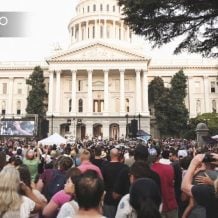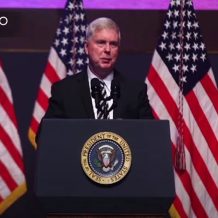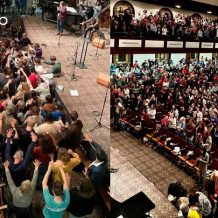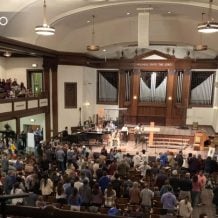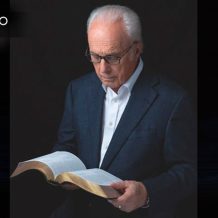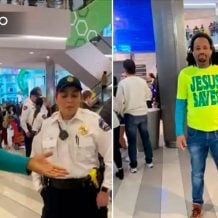The conservative majority of the US Supreme Court appeared ready on Monday to rule that a Christian web designer has the right to refuse to provide same-sex marriage services in a case that liberal justices say could empowering certain companies to discriminate based on constitutional free speech protections.

Judges heard the arguments in the appeal of Lorie Smith, a Denver-area business owner seeking a waiver of a Colorado law that prohibits discrimination based on sexual orientation and other factors. The lower courts ruled in favor of Colorado.
The conservative justices indicated their support for Smith’s view that companies that provide creative services such as web design are protected by the US Constitution’s First Amendment guarantee against restriction of free speech by part of the government and are not forced to express messages they oppose through their work. The court has a 6-3 conservative majority.
Smith, an evangelical Christian whose web design business is called 303 Creative, has said she believes marriage should be limited to opposite-sex couples. She preemptively sued the Colorado civil rights commission and other state officials in 2016 because she feared they would punish her for refusing to perform gay weddings under Colorado’s public accommodations law.
Colorado Anti-Discrimination Law prohibits businesses open to the public from denying goods or services to people because of their race, gender, sexual orientation, religion, and other characteristics.
The liberal justices offered several scenarios intended to show how a ruling adopting Smith’s arguments could allow companies claiming artistic rights to freely discriminate not only against LGBT people but on the basis of race, gender, disability and other factors.
Conservative Justice Clarence Thomas questioned how public accommodation laws can regulate speech, noting that Smith’s business “is not a hotel. This is not a restaurant. This is not a riverboat or a train.”
There are public accommodation laws in many states that prohibit discrimination in areas such as housing, hotels, retail businesses, restaurants, and educational institutions.
The case gives conservatives on the Supreme Court another chance to exercise their power after major recent rulings restricting abortion rights and expanding religious and gun rights.
READ ALSO: Christian senator in Italy criticized for calling gay marriage ‘abomination’, citing the Bible
The court has become increasingly supportive of religious rights and free speech-related claims in recent years, even as it has endorsed LGBT rights in other cases, such as its historical 2015 decision that legalized gay marriage in the whole country.
The Supreme Court in 2018 ruled in favor of Jack Phillips, a Denver-area Christian baker who refused on religious grounds to bake a wedding cake for a gay couple. But in that case it stopped short of creating a free speech exemption for anti-discrimination laws. Like Phillips, Smith is represented by Alliance Defending Freedom, a Christian legal group.
Today SCOTUS heard the case of graphic artist & 303 Creative owner Lorie Smith.
“Colorado is censoring and compelling my speech,” Lorie tells us, “and forcing me to create custom artwork, custom expression, that goes against the core of who I am & what I believe.” pic.twitter.com/MFNx49qubq
— Mary Margaret Olohan (@MaryMargOlohan) December 5, 2022
 English
English Português
Português Español
Español Français
Français



